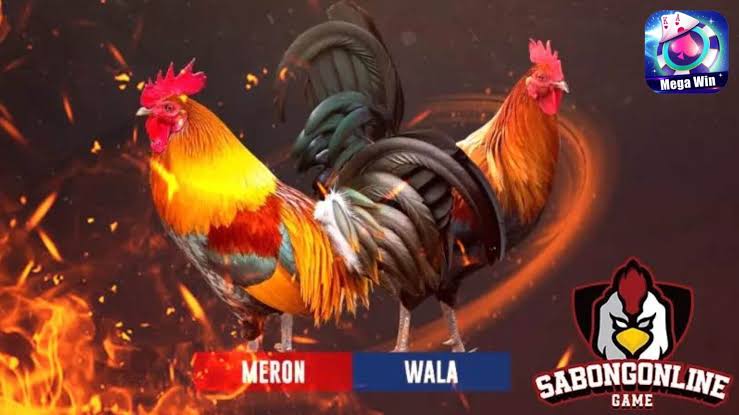Table of Contents
Sabong, also known as cockfighting, is a traditional sport that has deep roots in various cultures around the world, particularly in the Philippines. This practice, which involves two roosters fighting in a ring until one is incapacitated, has a history that spans centuries and holds significant cultural and social importance.

The Origins of Sabong
The history of sabong dates back to ancient times. Evidence suggests that cockfighting was practiced in Persia and India as early as 2000 BCE. From there, it spread to other parts of the world, including Greece, Rome, and eventually, Southeast Asia. The sport was introduced to the Philippines by the Spanish during their colonization in the 16th century. However, some historians argue that cockfighting existed in the Philippines even before the arrival of the Spanish, as it was already a popular pastime among native tribes.
Sabong in the Philippines
In the Philippines, sabong is more than just a sport; it is a cultural institution. The sport is deeply ingrained in Filipino society and has become a symbol of bravery, skill, and tradition. Cockfighting arenas, known as “sabungan,” can be found in almost every town and city, and the sport attracts participants and spectators from all walks of life.
Cultural Significance
The cultural impact of sabong in the Philippines cannot be overstated. It is a social activity that brings communities together. Families and friends gather at the sabungan not only to watch the fights but also to socialize, exchange stories, and build bonds. The sport fosters a sense of camaraderie and collective identity among Filipinos.
Moreover, sabong is often associated with important social and religious events. Festivals and fiestas frequently feature cockfighting as a central attraction, highlighting its role in community celebrations. The sport also has economic implications, as it generates income for breeders, trainers, and those involved in the betting industry.
The Ethics and Controversy
Despite its cultural significance, sabong is not without controversy. Animal rights activists and organizations have long criticized the sport for its inherent cruelty. The roosters are often equipped with sharp blades or gaffs attached to their legs, leading to brutal and bloody battles. The injuries sustained by the birds can be severe, often resulting in death.
In response to these concerns, some countries have banned or heavily regulated cockfighting. In the Philippines, the sport is legal but subject to regulations aimed at minimizing animal suffering. These regulations include guidelines on the treatment of the roosters, the conduct of the fights, and the qualifications of those involved in the sport.
Sabong and Modern Society
In modern times, the practice of sabong faces increasing scrutiny and pressure from animal welfare advocates. However, it remains a popular activity in many regions. The advent of technology has also influenced the sport, with online betting and live streaming of cockfights becoming increasingly common. This digital evolution has expanded the reach of sabong, attracting a global audience and transforming it into a lucrative industry.
The Future of Sabong
The future of sabong is uncertain. While it continues to be a cherished tradition for many Filipinos, changing societal values and growing concerns about animal welfare may lead to further restrictions or even the eventual decline of the sport. Advocates for the preservation of sabong argue that it is a vital part of Filipino heritage and should be respected and maintained. They emphasize the importance of responsible and humane practices to ensure the sport’s continuity.
Conversely, opponents believe that the ethical considerations outweigh the cultural significance. They advocate for alternative forms of entertainment and community-building activities that do not involve animal cruelty.
Conclusion
Sabong, or cockfighting, is a complex and multifaceted tradition with deep historical and cultural roots. Its significance in Filipino society is undeniable, serving as a source of entertainment, socialization, and cultural identity. However, the ethical concerns surrounding the sport cannot be ignored. As society evolves, so too must the practices and perceptions surrounding traditional activities like sabong. Balancing cultural preservation with ethical considerations will be crucial in determining the future of this ancient sport.

Frequently Asked Question (FAQs)
Boss88 extensive game library includes a wide variety of slots, table games, live dealer games, and sports betting options. Popular slot games include Crazy 777, Candy Party, and Fishing Game. Table game enthusiasts can enjoy Blackjack, Roulette, Baccarat, and Sic Bo. For an immersive casino experience, Boss88 offers live dealer games hosted by real croupiers. Sports betting fans can place bets on football, horse racing, boxing, tennis, and more.
Yes, Boss88 Online Casino is committed to providing a safe and secure gaming environment for its players. The platform employs advanced encryption technology to safeguard player information and financial transactions. Boss88 is also certified by four independent organizations that ensure fairness and protection against fraud.
Boss88 Online Casino offers a generous selection of bonuses and promotions to both new and existing players. Welcome bonuses, reload bonuses, cashback promotions, and referral rewards are just a few of the incentives available. Boss88 also runs regular tournaments and competitions with exciting prize pools.
Boss88 Online Casino offers a variety of secure and convenient payment methods for deposits and withdrawals. Popular options include credit/debit cards, e-wallets, and bank transfers. The platform’s processing times are fast and efficient, ensuring that players can access their winnings quickly.

